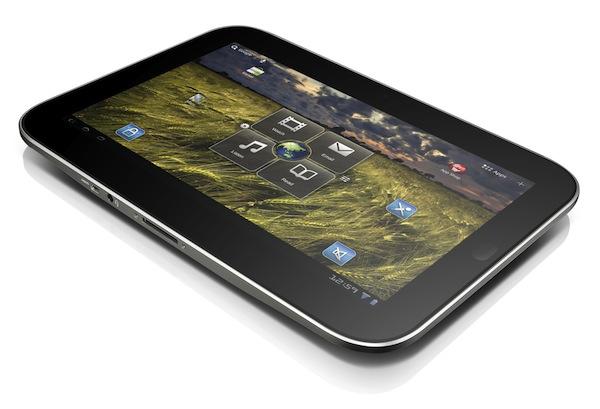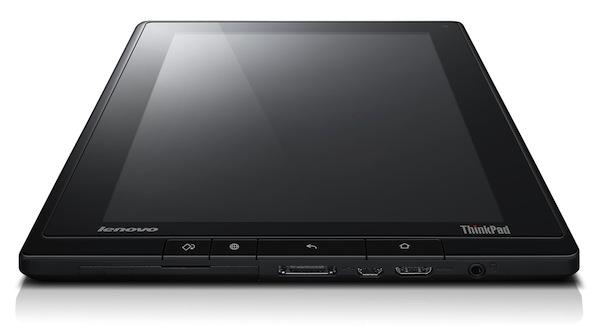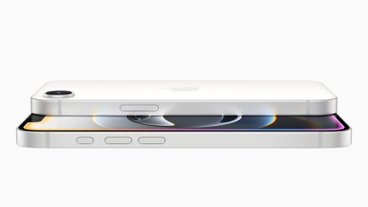"We are lucky that Steve Jobs has such a bad temper and doesn't care about China," Liu reportedly said last year. "If Apple were to spend the same effort on the Chinese consumer as we do, we would be in trouble."
It appears Lenovo's luck has run out, as Apple has, by its own admission, brought its focus to bear on China and seen impressive results: six-fold revenue growth in the region year over year.
Bloomberg spoke to four analysts who each agreed that Apple's $3.8 billion in revenues in Greater China during the June quarter will easily beat Lenovo's for the same period.
Among those surveyed by the publication, an estimate of $3 billion in sales in mainland China was the highest of the projections. Even using the highest estimate, analysts said, adding in the revenues from Hong Kong and Taiwan would not be enough for Lenovo to stay ahead of its competitor.
The Beijing and North Carolina-based company, which purchased IBM's ThinkPad personal computing business in 2005, is due to report earnings next month. During the March quarter, Lenovo made $2.2 billion in consolidated sales in China, which likely doesn't count Hong Kong or Taiwan, and $4.88 billion in total consolidated sales.
Lenovo responded to the report by saying, “Our results in China have been strong. Lenovo is the number one PC company in China with more than 30 percent market share — more than 3 times our nearest competitor.†While Lenovo's PC market share in China will likely remain ahead of Apple for some time, it's the iPhone that has driven the majority of growth for the company.
Asia/Pacific was Apple's fastest growing region in the June quarter, almost quadrupling year-over-year. Meanwhile, Lenovo's LePhone, which is designed specifically for Chinese consumers, hasn't seen the same kind of growth. The company's mobile division achieved just $187 million in sales last quarter.
Apple has also seen success in China with its iPad 2, which drew sell-out crowds when it launched there in May. Earlier this week, Lenovo launched three new tablets: the $499 IdeaPad Tablet K1 for consumers; the $479 ThinkPad tablet for business users; and the IdeaPad Tablet P1 for home and office use, which is coming in the fourth quarter of this year.
For its part, Apple has said it is just "scratching the surface" of the Chinese market, with the iPhone available on just one of China's three carriers. Additionally, Apple has just four retail stores in China, though the locations are the best-performing of the company's brick-and-mortar outlets. The company's retail successes have even spawned ">fake Apple Stores with staff claiming to work for Apple.
 Josh Ong
Josh Ong








-m.jpg)






 Wesley Hilliard
Wesley Hilliard
 Christine McKee
Christine McKee
 Malcolm Owen
Malcolm Owen
 William Gallagher
William Gallagher
 Andrew Orr
Andrew Orr






-m.jpg)




10 Comments
You'd think by now that competing manufacturers would understand this simple mantra: you don't "pre-define" the 'segment' a device is made for. Make a 'universal' device, and let the users differentiate it themselves via a customized experience.
I got this picture from the article:
Apple: iPad (2) -> 'universal' user experience that can be differentiated & customized according to a user's own needs / interests
Lenovo:
- IdeaPad Tablet K1 "for consumers" (what does this mean exactly?)
- ThinkPad tablet "for business users" (a little more clear, but why the constraint?)
- IdeaPad Tablet P1 "for home and office use" (and I'm trying to understand how this is different from "business use" or "consumer use"? Some kind of hybridized experience?)
It's old, tired thinking that believes this method of defining a "product mix" gives better market reach. Instead, it feels like constraints are being applied across the board. Contrived niches being created.
I can use my iPad for all those things; consumption, creation, business, pleasure, everyday domestic & small office tasks… why would I constrain the 'purpose' of my tablet out of the box? It's a legacy approach, where the slogan for the product mix should be more like, "Choose Your Limits"…
The proof is in the putting (pudding?)… how much more educating do they need?
Apple sure got it right in this respect. Do one product really well. Make it universally appealing and flexible. Sell one to all markets and segments.
Add in a consistently high-quality product build, and voila. They win…
Lenovo could leverage the "ThinkPad" brand into a single universally appealing device, and sell a lot more of them (one presumes, but since it's Windows based(?) it might not make a difference yet)…
Just thinking out loud here…
"We are lucky that Steve Jobs has such a bad temper and doesn't care about China," Liu reportedly said last year. "If Apple were to spend the same effort on the Chinese consumer as we do, we would be in trouble."
Of all the people to challenge he chucks a gauntlet at Steve's feet with that comment!
Lenovo:
- IdeaPad Tablet K1 "for consumers" (what does this mean exactly?)
Transation: Looks a bit iPad-ish
Translation: Looks a bit ThinkPad-ish
Translation: We promised MS we'd make a windows 7 tablet but we really have no clue who would want one.
I think it might have worked, if the ThinkPad was 4:3, but it's not it's 16:10 - it's clearly the same device fundamentally internally. Businesses don't want tablets with an aspect ratio for watching video.
You'd think by now that competing manufacturers would understand this simple mantra: you don't "pre-define" the 'segment' a device is made for. Make a 'universal' device, and let the users differentiate it themselves via a customized experience.
I got this picture from the article...
It's old, tired thinking that believes this method of defining a "product mix" gives better market reach. Instead, it feels like constraints are being applied across the board. Contrived niches being created.
...Just thinking out loud here?
Yours is an interesting and perceptive view and I feel that you have a valid argument. It seems that everyone except Apple does this...
Apple's perspective, here's the best we can do, perhaps your life will be a little better off for it. \
All the best.
The upwardly mobile sector of Chinese society is one of the most brand-conscious consumers in the world. This is true for any society experiencing both rapid income growth and rising exposure to the rest of the world. Lenovo is kind of stupid not to expect this.